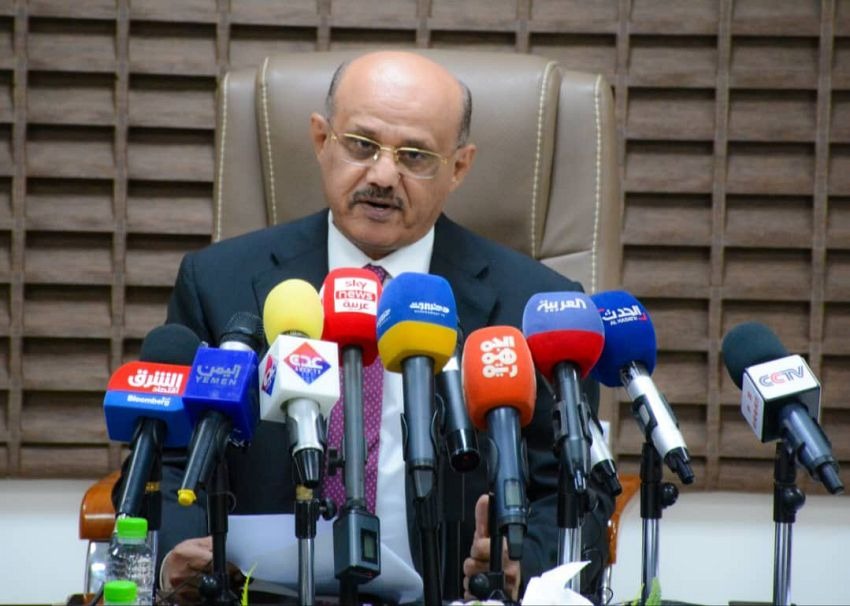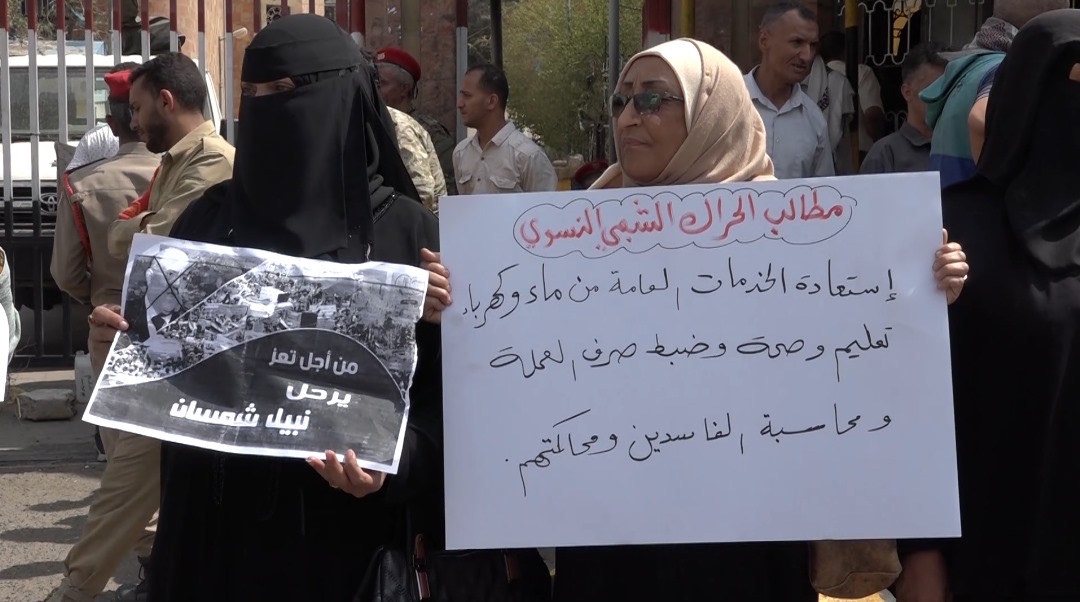
Barran Press
Ahmed Ahmed Ghaleb, Governor of Yemen's Central Bank in the temporarily declared capital of Aden (south Yemen), stated on Friday, May 31, 2024, that the Central Bank has acted responsibly since its relocation to Aden, recognizing the importance of the banking sector, per the Central Bank Law, Commercial and Islamic Banking Laws, and regulations governing all economic activities.
In a press conference held at the bank's headquarters in Aden, attended by Barran Press, the Governor clarified that the bank's decision number 20 of 2024, regarding the suspension of dealings with certain banks, is a sovereign decision of a monetary and banking nature, with no connection to any local, regional, or international events or entities.
He emphasized that the bank operates based on the law, not directives or suggestions, and is committed to implementing the decision in all its stages according to the established plan.
Regarding the rationale behind the recent decision, Governor Ghaleb pointed out the bank's tolerance of numerous transgressions, provocations, and violations by the other party, referring to the Houthi group, internationally designated as a terrorist organization.
He accused the Houthis of crossing "all red lines that cannot be ignored, threatening the national economy, the entire banking system, and our dealings with the world."
He added that with the designation of the Houthis as a terrorist group by the United States and Australia, indicators suggest similar classifications by other groups and countries across continents. This, he said, has created a challenging reality for the entire Yemeni banking sector, not just banks under the group's control.
He emphasized that this compelled the Central Bank to take action to maintain minimum banking standards required for international engagement, not just for Yemen.
The Governor stated that the bank has documented over 20 violations committed by the Houthis against the banking sector, accelerating the bank's decision-making process and necessitating the relocation of banks and their operations to the temporary capital, Aden, as an attempt to salvage these institutions and prevent their collapse.
Regarding the recent decision on the old currency, the Governor clarified that it is a Yemeni sovereign decision, of a monetary and banking nature, unrelated to the regional or international situation, as claimed by the Houthis.
He also asserted that it has no connection to the Gaza conflict, emphasizing that the entire Yemeni people stand with Gaza and the resistance against the brutal occupation. This, he said, is an official and popular stance, unlike the Houthis' exploitation of this just cause to justify their opportunistic goals.
He accused the Houthis of initiating the politicization of the banking sector, breaching all standards and laws by first freezing and confiscating citizens' accounts, numbering in the thousands, of those they accuse or believe oppose their policies and repression.
He highlighted the Houthis' prevention of the circulation of the new national currency, stating that this has divided the country, fragmented the economy, and created a bitter reality for the Yemeni people, with those under the group's control suffering the most.
He added that among the Houthis' violations are the cutting of salaries and the establishment of economic influence in areas under their control. They have also created a fictitious exchange rate to plunder citizens' savings, manipulating the exchange rate to a level lower than the real rate determined by economic factors.
He addressed the Houthis' issuance of a law they call "Prohibition of Interest-Based Transactions," explaining that they have converted citizens' accounts to current accounts, prohibiting withdrawals, depriving people of their savings, and threatening the entire banking sector, particularly commercial banks.
He criticized the Houthis' distorted and backward interpretation of the "Prohibition of Interest-Based Transactions" law, stating that it has overturned all laws and regulations governing the banking and entire economic sectors, including the Central Bank Law, Commercial and Islamic Banking Laws, and the Commercial Code, among others.
He stated that the most egregious violation was the Houthis' printing of counterfeit currency by an illegitimate and illegal entity and its introduction into circulation. This, he said, compelled the Central Bank to intervene to stop these blatant violations and salvage what could be saved.
He emphasized that the Central Bank's decisions have received regional and international understanding and support, primarily from all international financial organizations and anti-money laundering and terrorism financing organizations.
He affirmed that any action taken or to be taken by the Central Bank is within the framework of attempting to rescue these banks in Sana'a, protect their remaining assets, and maintain their relationships and dealings with their surroundings and the world.
He stated that the bank does not react to criminal and provocative practices, nor does it seek escalation or complication. He has given ample space and opportunities to those who sought to reach fair solutions to alleviate the suffering of the people in all governorates caused by these militias and to protect our private, public, and mixed financial institutions, preventing them from significant losses and complications.
He stressed that he will continue to fulfill his duties towards the people and its institutions in cooperation with international financial institutions and active partners from brotherly and friendly countries.
On Thursday, May 30, 2024, the bank urged all individuals, businesses, companies, other entities, and financial and banking institutions holding paper money of the old pre-2016 edition, of all denominations, to deposit it within a maximum period of 60 days from the date of this announcement.
The Central Bank, in a statement published on its official website and reviewed by Barran Press, emphasized that "citizens, non-financial institutions, businesses, and other entities that do not have accounts with the Central Bank are required to deposit their holdings of the specified edition at commercial and Islamic banks and their branches spread across liberated governorates."
It also called on banks and financial and banking institutions that have accounts with the Central Bank to "deposit their holdings of the specified edition mentioned above at the Central Bank headquarters in Aden and its branches spread across liberated governorates."
The Central Bank also issued its decision number 20 of 2024, which approved the suspension of dealings with six Yemeni banks and financial institutions after the expiration of the 60-day deadline for implementing its decision to relocate their headquarters to Aden. These banks are Al-Tadamon Bank, Yemen Kuwait Bank, Yemen and Bahrain Comprehensive Bank, Al-Amal Bank for Microfinance, Al-Kremi Bank for Islamic Microfinance, and Yemen International Bank.
In early April, the Central Bank of Yemen in Aden, the temporarily declared capital of the country (south Yemen), issued a decision obligating commercial banks, Islamic banks, and microfinance banks to relocate their headquarters from Sana'a to Aden within a maximum period of 60 days.
The Central Bank, in the justifications for the decision, threatened to take all legal measures against banks that fail to comply with the decision "per the provisions of the Anti-Money Laundering and Terrorist Financing Law and its executive regulations."





